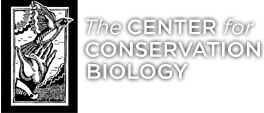Code
CCBTR-12-09
Publication Date
2012
Abstract
Intro and Objectives: Historically, the Bald Eagle was a common breeding species along major river systems, lakes and coastal areas throughout much of North America. The widespread use of persistent pesticides for crop management in the region resulted in dramatic declines over a 30-40 year period. By the late 1960s, most breeding populations had been decimated by eggshell thinning and associated low productivity. Concern for these populations prompted the elevation of the Bald Eagle to endangered status and led to a national effort to restore historic populations. Since the nationwide ban on many persistent pesticides in 1972, many populations have experienced gradual recoveries in productivity and total numbers. The state of North Carolina has seen an increase from no breeding pairs in the late 1960s to approximately 136 pairs as of 2008. Work conducted by The Center for Conservation Biology in 1995 and 1996 at Alcoa Power Generating Inc.’s (APGI) Yadkin Project (FERC #2197) identified areas of consistent use by eagles in inland areas of North Carolina and suggested that nesting activity should be anticipated in the Yadkin-Pee Dee River basin. A survey of this system in 2001 provided confirmation of these suggestions. Since that survey annual efforts to monitor this population have continued. Results of the 2012 survey follow (a summary of all eagle nesting activity since 2001 is provided at the end of this report). Objectives The objectives of the eagle survey on Yadkin Project reservoirs were 1) to document the status, distribution and productivity of nesting pairs in association with the Yadkin reservoirs and associated river corridors and 2) to increase our understanding of Bald Eagle natural history in interior regions of North Carolina. A third objective was to determine the status and distribution of breeding Great Blue Herons along the system of reservoirs.
Topic
Abundance/Distribution; Breeding/Demography/Population Dynamics
Species
Bald Eagle; Great Blue Heron
Source
The Center for Conservation Biology Technical Report Series, CCBTR-12-09. College of William and Mary & Virginia Commonwealth University, Williamsburg, VA.
Pages
49
Recommended Citation
Watts, B. D. and F.M. Smith. 2012. An assessment of the Bald Eagle and Great Blue Heron breeding populations along High Rock , Tuckertown, Narrows, and Falls Reservoirs in central North Carolina: 2012 breeding season. Center for Conservation Biology Technical Report Series, CCBTR-12-09. College of William and Mary and Virginia Commonwealth University, Williamsburg, VA. 49 pp.




